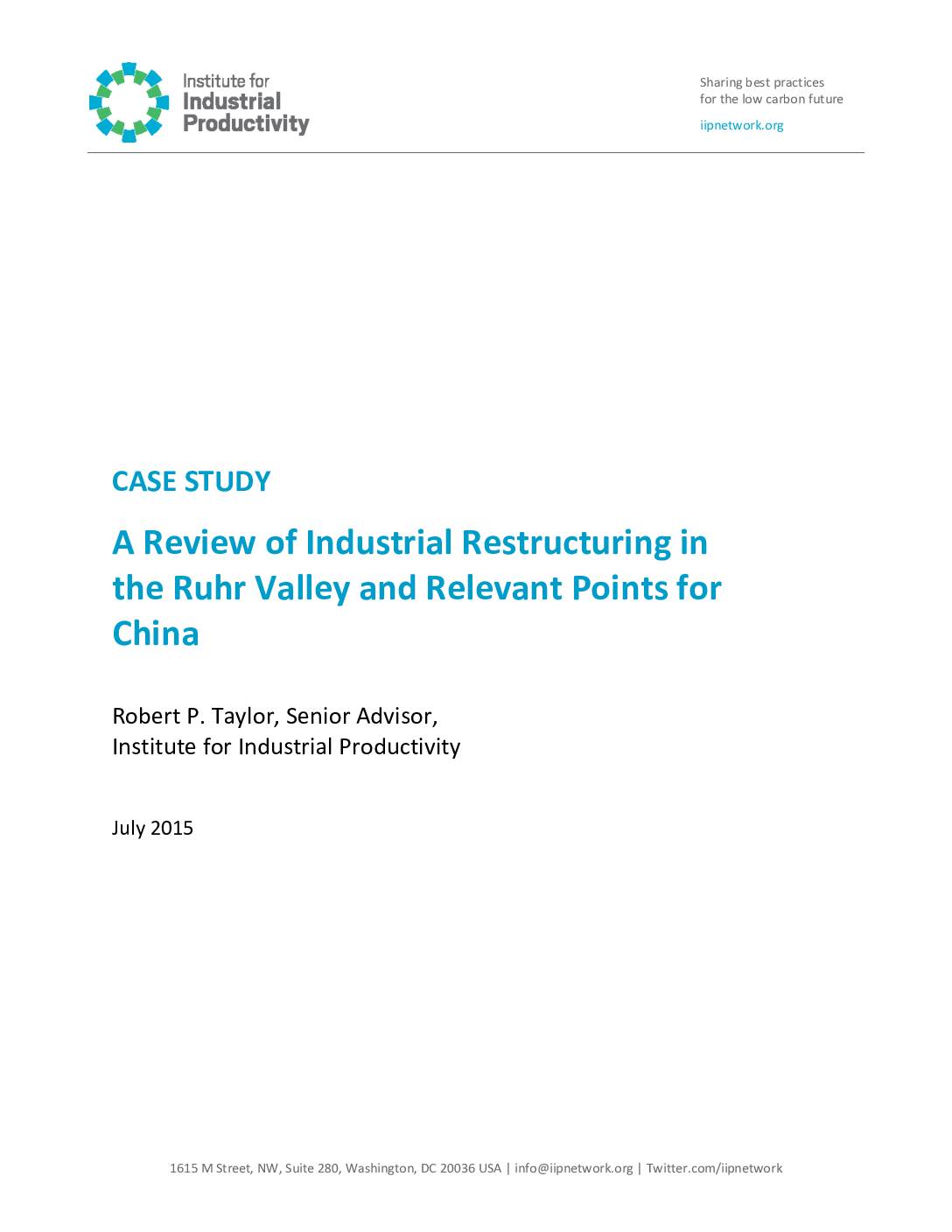Over five decades, the economy of the Ruhr Valley in Germany has undergone a dramatic restructuring, away from its original coal and steel-based economy to a more diversified service economy. The process was difficult, but the restructuring has been more successful than in some other regions around the world that are facing similar challenges. Although the industrial restructuring that China is now facing is, in some ways, different, there also are similarities in the aspirations to develop the service economy as heavy industrial growth slows―to soften social hardships and job loss, and to proceed with industrial restructuring in such a way as to help stem the tide of the country’s worsening environmental pollution. This report provides an overview of the Ruhr’s experience, as seen from an outsider. It seeks to put the story of economic restructuring in the Ruhr in a context that makes sense for Chinese readers. Following the overview section, the report provides a summary of the restructuring policy phases in the Ruhr’s recent history. It then provides recommendations on a number of specific topics of the Ruhr’s experience that may be most relevant for concerned Chinese to explore in detail, through recommended future Chinese-German exchanges. The report thus provides only a first step in an effort to help enable lessons from the Ruhr Valley’s rich experience to be understood and brought to bear in the truly massive industrial restructuring that China will see over the next decade and beyond.
Link to resource Download sourceShare this

Sector: Cross cutting
Country / Region: Asia, China, Europe, Germany
Tags: corporate reporting, jobs, pollutionKnowledge Object: Publication / Report
Published by: IIP
Publishing year: 2015
Author: Robert P. Taylor
